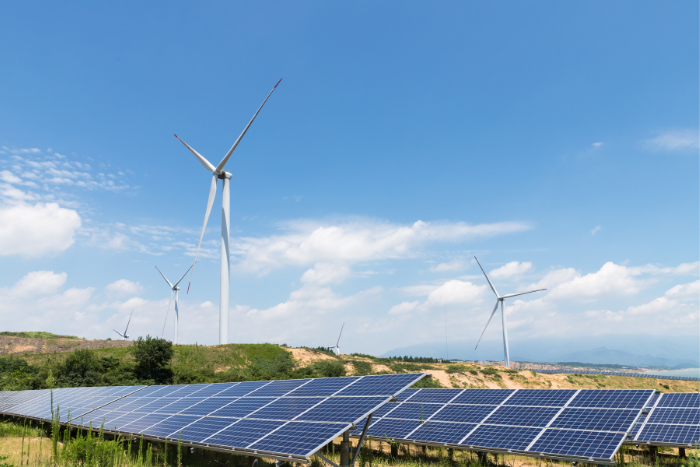India’s renewable energy production is expected to be impacted by climate change, according to a recent study by researchers at the Indian Institute of Tropical Meteorology (IITM), Pune. The study warned that in a business-as-usual scenario, climate change is likely to impact the potential of solar and wind energy in India in the next 50 years. The modelling data showed the solar radiance diminishing in most of India. The wind speed showed a decreasing trend in north India, but an increasing trend in south India. Mongabay reported that the study claimed that time is ripe for development of efficient technologies to combat the negative effects of climate change on the renewable energy sector.
The study used climate models such as Coordinated Regional Climate Downscaling Experiment (CORDEX), Coupled Model Intercomparison Project phase 5 (CMIP5) and CMIP6 to understand climate projections for various parts of the country over five decades. The data from the models helps analyse the availability of renewable energy sources in the future.
Annual investment in solar up 25%, SECI paid $119.6 million in July to solar and wind developers
Investments in India’s solar sector jumped 25% at $2.82 billion year-on-year in Q2, 2022. Last year, it was $2.26 billion. Compared to the last quarter, the increase was marginal. Adani and Tata received the largest amount of investments.
The Solar Energy Corporation of India (SECI) paid $119.6 million to solar and wind power generators for the power it bought from them in July 2022. In June, the amount SECI paid was $114.78 million. The main beneficiaries for the July payment were Adani, Sprng Renewable energy, Green Infra and Azure Power.
Parliament panel to govt: Wind energy sector lagging, get it back on track
A Parliamentary panel on energy urged the government to bring the wind energy sector back on track in India. It said the government gives priority to solar over wind, even when solar is heavily dependent on imports. Mongabay reported that since 2014, the solar sector has surpassed the wind energy sector in India. The report pointed out that the introduction of bidding in 2017, is one of the reasons that have stalled the growth of wind energy in the country. The House panel recently recommended giving a push to wind energy. Mongabay stated that repowering old turbines is one option to improve energy production but it needs further discussion about investment and old agreements.
Government is also pushing off-shore wind projects in India, with a target of 30 GW by 2030. Experts say India can potentially generate 194GW of offshore wind power along its 7,600km coastline.
Solar module prices to fall in 2023: CEA
Prices of solar modules are likely to fall, globally, along with forecasted polysilicon price reductions by 2023, according to new research by Clean Energy Associates (CEA) reported by IEEFA. This year the prices of modules have remained unchanged because of higher than expected demand in Europe and limited polysilicon supplies, prices are expected to fall next year.
CEA recommended buying modules around two to three quarters from delivery as the current market environment will impact future long-term orders, IEEFA reported.
The report stated that in the US, module prices increased significantly from CEA’s previous forecast due to the threat of an anti-dumping and countervailing duty (AD/CVD) extension to several Southeast Asian countries.
India added 1.9 GW RE open access capacity in 2022: IEEFA
India added nearly 2GW of renewable energy open access capacity in 2022, reported IEEFA. Falling costs of renewable energy and decarbonisation targets of industry is driving the uptake of open access (OA) power, the report said. The report pointed out that the lack of central and state tender activity has led many utility-scale project developers who only sold electricity to DISCOMs to venture into this space.
IEEFA says the Green OA Policy, issued in June 2022, has the potential to completely reform the renewable energy OA market landscape if states implement the policy efficiently and in a timely manner.
About The Author
You may also like
PMSGY Drives Rooftop Solar Expansion, But Challenges Remain: Report
Global Renewable Energy Capacity to Double by 2030, Led by Solar PV: Report
India’s GST overhaul eases path for India’s green growth
India records second highest solar installations in first half of 2025, surpassing US
Africa’s solar imports surged 60% in the last 12 months: Report

